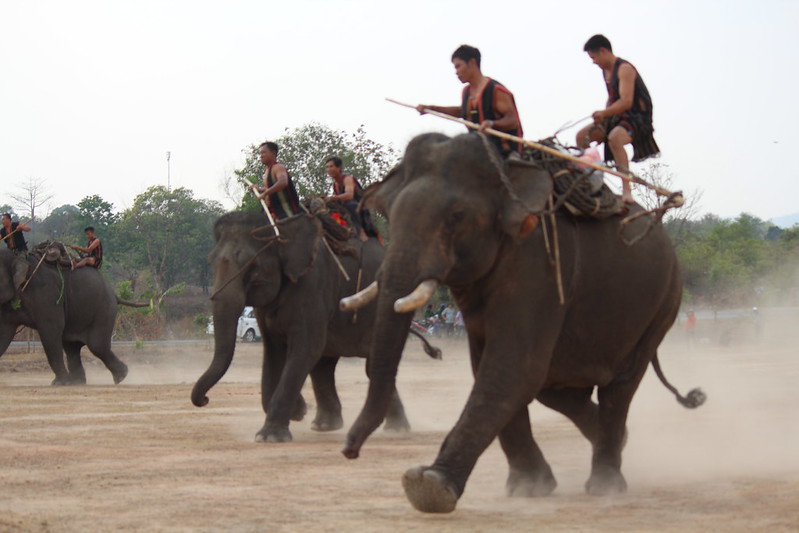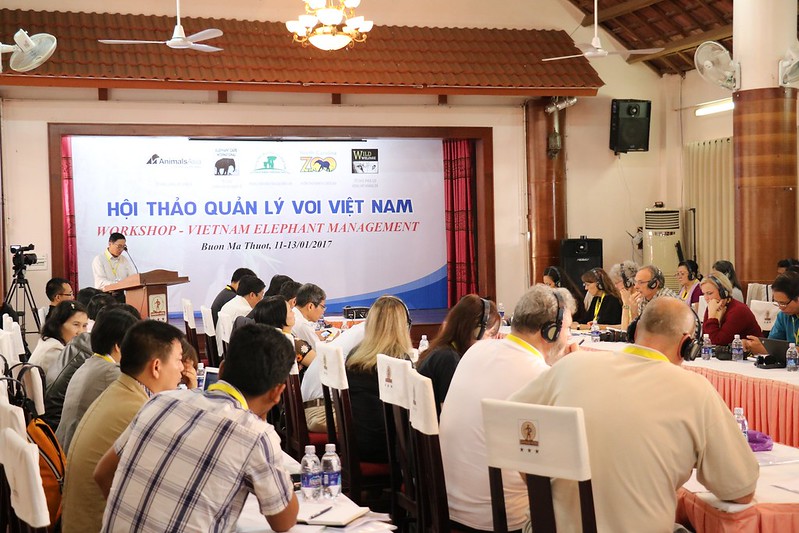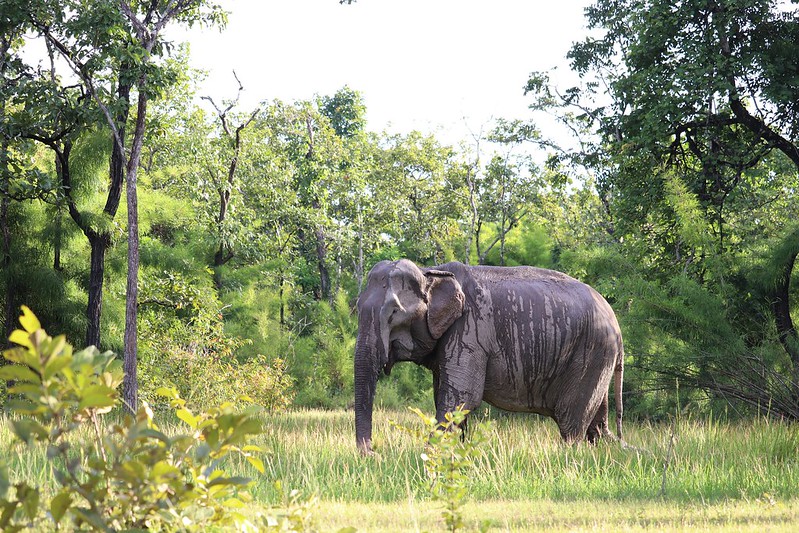Animals Asia’s work to save endangered Asian elephants praised by Vietnam government
06 June 2019
Four years of work to conserve Vietnam’s last remaining wild elephants and improve captive welfare recognised by government.
At a ceremony in Vietnam’s Dak Lak province, Animals Asia representatives were presented with an award in recognition of the charity’s long-term programme to conserve wild elephants and improve the welfare of captive elephants.
Dak Lak province is synonymous with elephants in Vietnam and is home to 88 captive Asian elephants, most of whom are forced to give rides to tourists.
However, according to data from the Vietnam Administration of Forestry, Vietnam’s wild elephant population is believed to have fallen to between 100 and 150, a figure conservationists say is not viable to ensure their survival.
Animals Asia Vietnam Director Tuan Bendixsen said:
“The history and identity of the modern Dak Lak province is intimately tied to their relationship with elephants. Sadly, this is in danger as loss of habitat is leading to the extinction of the species in Vietnam.
“If we are to avert a disaster, a new relationship between people and elephants needs to begin in Vietnam. Exploitation must end and the elephants’ needs met, if our relationship with these amazing animals is to continue.”
Animals Asia has been working in the province since 2015, advocating a shift away from exploitative tourism rides and has partnered with the government to set up the Elephant Conservation Centre (ECC). Since that time, the organization has also provided animal welfare management and veterinary care to the ECC in an attempt to save Vietnam’s last remaining wild Asian elephants.
However, efforts to rehabilitate rescued elephants and to provide a sanctuary with the highest standards of welfare to encourage natural breeding and enable wild release have been hampered by a lack of government investment.
The ECC is currently home to three elephants. Male bull Jun was rescued after becoming caught in a hunter’s snare which mutilated his trunk and front limb.
Male calf Gold was discovered trapped in a well dug by loggers and became a resident at the sanctuary when attempts to reintegrate him with a local herd failed.
The third resident is Thong Kham, an adult bull taken into the care of the centre when his mahout died.
Without the ECC, these individuals would either have died, spent their lives chained up in underfunded zoos, or been exploited for rides in the tourism industry until they collapsed from exhaustion.
Animals Asia also works to raise awareness of the plight of elephants forced to work in the entertainment industry, either giving rides for tourists or performing in circuses.
In October 2018, Animals Asia partnered with Yok Don National Park to set up Vietnam’s first ethical elephant tours with funding from Olsen Animal Trust.
The project has seen four elephants released from tourism rides and instead allowed to roam freely in the national park. Now tourists trek through the forest to observe the pachyderms in their natural environment.
Less than a year on from the project’s founding, the elephants have already been described as “the healthiest in Vietnam”.
While the Dak Lak authorities have made commendable efforts to improve the lives of elephants, there is still much more to be done.
In March this year, the annual Dak Lak Coffee Festival – held in Buon Don district – saw serious breaches of animal welfare as elephants were forced to compete in competitive swimming and sprint races as well as playing football and providing rides for tourists.
Animals Asia Animal Welfare Director Dave Neale said:
“I was personally shocked by the level of abuse the elephants suffered at the festival and we made our opinions clear to our partners in government.
“There is still a long way to go in terms of raising awareness of welfare among the population so that such events are widely condemned as the past, rather than the future, of Vietnam’s relationship with elephants.”
To tackle the issue of animal cruelty in Vietnam’s tourism industry, a working group has been established.
The group – containing Animals Asia, The Ministry of Agriculture and Rural Development, the Buon Don district People’s Committee and the ECC – have been tasked with finding solutions that will protect the welfare of captive elephants, the livelihoods and traditions of people in the community and preserve wild elephants in the province.
While just 150 wild Asian elephants are believed to roam Vietnam today, around 2,000 are thought to have been present in 1990.
The rapid decline in numbers is largely due to loss of habitat as forests are cleared for logging and agriculture. Historically, wild capture for domestication in the tourism industry and poaching for ivory have been exacerbating factors, although poaching has ceased in recent years.
In January 2019, Animals Asia renewed their contract with the ECC, and committed to a further two years of partnership with the facility.
BACK









